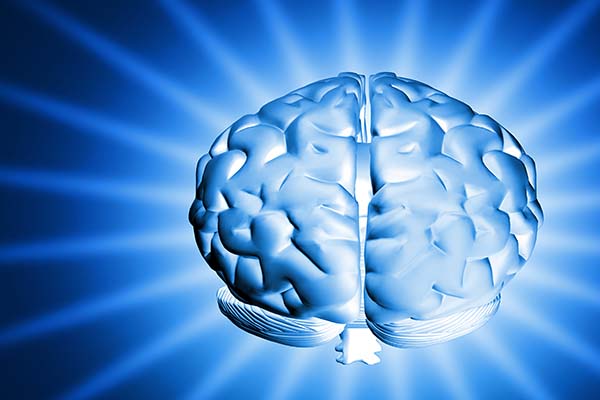According to a University of Edinburgh study, learning a second language can have a positive effect on the brain, even if it is taken up in adulthood.
Researchers found that reading, verbal fluency and intelligence were improved in a study of 262 people tested either aged 11 or in their seventies.
A previous study suggested that being bilingual could delay the onset of dementia by several years.
The study is published in Annals of Neurology.
The big question in this study was whether learning a new language improved cognitive functions or whether individuals with better cognitive abilities were more likely to become bilingual.
Dr. Thomas Bak, from the Centre for Cognitive Ageing and Cognitive Epidemiology at the University of Edinburgh, said he believed he had found the answer.

Learning a second language can have a positive effect on the brain, even if it is taken up in adulthood
Using data from intelligence tests on 262 Edinburgh-born individuals at the age of 11, the study looked at how their cognitive abilities had changed when they were tested again in their seventies.
The research was conducted between 2008 and 2010.
All participants said they were able to communicate in at least one language other than English.
Of that group, 195 learned the second language before the age of 18, and 65 learned it after that time.
The findings indicate that those who spoke two or more languages had significantly better cognitive abilities compared to what would have been expected from their baseline test.
The strongest effects were seen in general intelligence and reading.
The effects were present in those who learned their second language early, as well as later in life.
Dr. Thomas Bak said the pattern they found was “meaningful” and the improvements in attention, focus and fluency could not be explained by original intelligence.
“These findings are of considerable practical relevance. Millions of people around the world acquire their second language later in life. Our study shows that bilingualism, even when acquired in adulthood, may benefit the aging brain.”
However, Dr. Thomas Bak admitted that the study also raised many questions, such as whether learning more than one language could also have the same positive effect on cognitive ageing and whether actively speaking a second language is better than just knowing how to speak it.
Dr. Alvaro Pascual-Leone, professor of medicine at Harvard Medical School in Boston, US, said: “The epidemiological study provides an important first step in understanding the impact of learning a second language and the ageing brain.
“This research paves the way for future causal studies of bilingualism and cognitive decline prevention.”
A new research suggests that a diet rich in vitamins and fish may protect the brain from ageing while junk food has the opposite effect.
Elderly people with high blood levels of vitamins and omega 3 fatty acids had less brain shrinkage and better mental performance, a Neurology study found.
Trans fats found in fast foods were linked to lower scores in tests and more shrinkage typical of Alzheimer’s.
A UK medical charity has called for more work into diet and dementia risk.
The best current advice is to eat a balanced diet with plenty of fruit and vegetables, not smoke, take regular exercise and keep blood pressure and cholesterol in check, said Alzheimer’s Research UK.
The research looked at nutrients in blood, rather than relying on questionnaires to assess a person’s diet.
US experts analyzed blood samples from 104 healthy people with an average age of 87 who had few known risk factors for Alzheimer’s.
They found those who had more vitamin B, C, D and E in their blood performed better in tests of memory and thinking skills. People with high levels of omega 3 fatty acids – found mainly in fish – also had high scores. The poorest scores were found in people who had more trans fats in their blood.
Trans fats are common in processed foods, including cakes, biscuits and fried foods.
The researchers, from Oregon Health and Science University, Portland; Portland VA Medical Center; and Oregon State University, Corvallis, then carried out brain scans on 42 of the participants.
They found individuals with high levels of vitamins and omega 3 in their blood were more likely to have a large brain volume; while those with high levels of trans fat had a smaller total brain volume.
Study author Gene Bowman of Oregon Health and Science University said: “These results need to be confirmed, but obviously it is very exciting to think that people could potentially stop their brains from shrinking and keep them sharp by adjusting their diet.”
Co-author Maret Traber of the Linus Pauling Institute at Oregon State University said: “The vitamins and nutrients you get from eating a wide range of fruits, vegetables and fish can be measured in blood biomarkers.
“I’m a firm believer these nutrients have strong potential to protect your brain and make it work better.”
Commenting on the study, Dr. Simon Ridley, head of research at Alzheimer’s Research UK, said:
“One strength of this research is that it looked at nutrients in people’s blood, rather than relying on answers to a questionnaire.
“It’s important to note that this study looked at a small group of people with few risk factors for Alzheimer’s disease, and did not investigate whether they went on to develop Alzheimer’s at a later stage.
“There is a clear need for conclusive evidence about the effect of diet on our risk of Alzheimer’s, which can only come from large-scale, long-term studies.”

